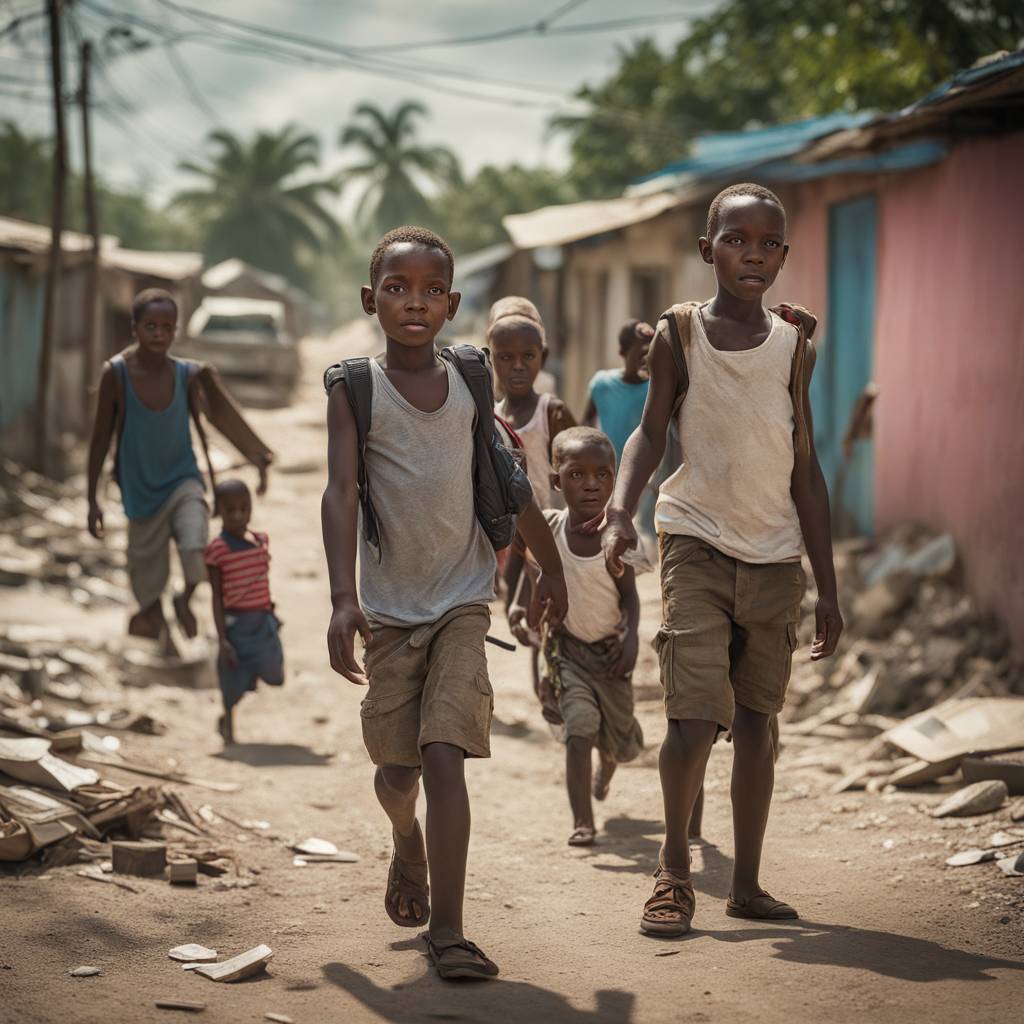During the period from March 8 to 27, a total of 53,125 people fled the capital of Haiti, Port-au-Prince, due to ongoing gang violence. More than 60% of these refugees are making their way towards the rural southern region of the country, which is already home to over 116,000 others who have fled the city. The United Nations has expressed concern about the lack of infrastructure and resources in these areas to accommodate the influx of people escaping the capital. This mass exodus has been triggered by a series of attacks by powerful gangs on government institutions, including the burning of police stations, violent incidents at the airport, and prison breakouts that have released thousands of inmates.
The violence in Port-au-Prince has resulted in over 1,500 reported deaths as of March 22, with another 17,000 individuals left homeless. The situation has prompted many residents, like Marjorie Michelle-Jean and her children, to attempt a dangerous journey north to escape the chaos. However, the majority of those fleeing the capital are heading south, overcrowding buses that traverse gang-controlled territories where incidents of gang rape and shootings have been reported. The prime minister of Haiti, Ariel Henry, has announced his impending resignation once a transitional presidential council is established, as he remains stranded outside of the country amid the ongoing crisis.
Despite the uncertainty and turmoil in the country, some individuals like 29-year-old Gary Dorval are choosing to stay and participate in demonstrations in the hopes of being part of the change that is urgently needed in Haiti. The transitional council, responsible for selecting a new prime minister and council of ministers, has yet to be formally established. The U.N. has highlighted the dire situation in Haiti, with many refugees living in overcrowded and unsanitary conditions in makeshift shelters or with relatives in the city. The lack of resources in the rural areas to accommodate the influx of people from Port-au-Prince is a major concern, further exacerbated by the existing vulnerabilities of the host communities.
The ongoing gang violence and instability have created a humanitarian crisis in Haiti, with thousands fleeing the capital in search of safety and stability. The mass migration from Port-au-Prince is expected to continue as the situation remains unresolved, leaving many individuals in precarious situations. The international community, including the United Nations, is monitoring the situation closely and working to address the urgent needs of those affected by the crisis. The resilience and determination of the Haitian people are evident as they navigate the challenges and uncertainties in their quest for a better future amidst the chaos and violence that plagues their country.













